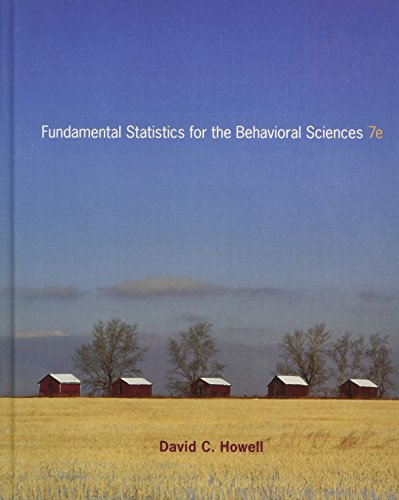It has been argued that firstborn children tend to be more independent than later-born children. Suppose we
Question:
It has been argued that firstborn children tend to be more independent than later-born children. Suppose we develop a 25-point scale of independence and rate each of 20 firstborn children and their secondborn siblings using our scale. We do this when both siblings are adults, thus eliminating obvious age effects. The data on independence are as follows (a higher score means that the person is more independent):
Sibling First- Second- Sibling First- Second-
Pair Born Born Pair Born Born 1 12 10 11 13 8 2 18 12 12 5 9 3 13 15 13 14 8 4 17 13 14 20 10 5 8 9 15 19 14 6 15 12 16 17 11 7 16 13 17 2 7 8 5 8 18 5 7 9 8 10 19 15 13 10 12 8 20 18 12
(a) Analyze the data using Wilcoxon’s matched-pairs signed-ranks test.
(b) What would you conclude?
Step by Step Answer:

Fundamental Statistics For The Behavioral Sciences
ISBN: 9780495811251
7th Edition
Authors: David C Howell






